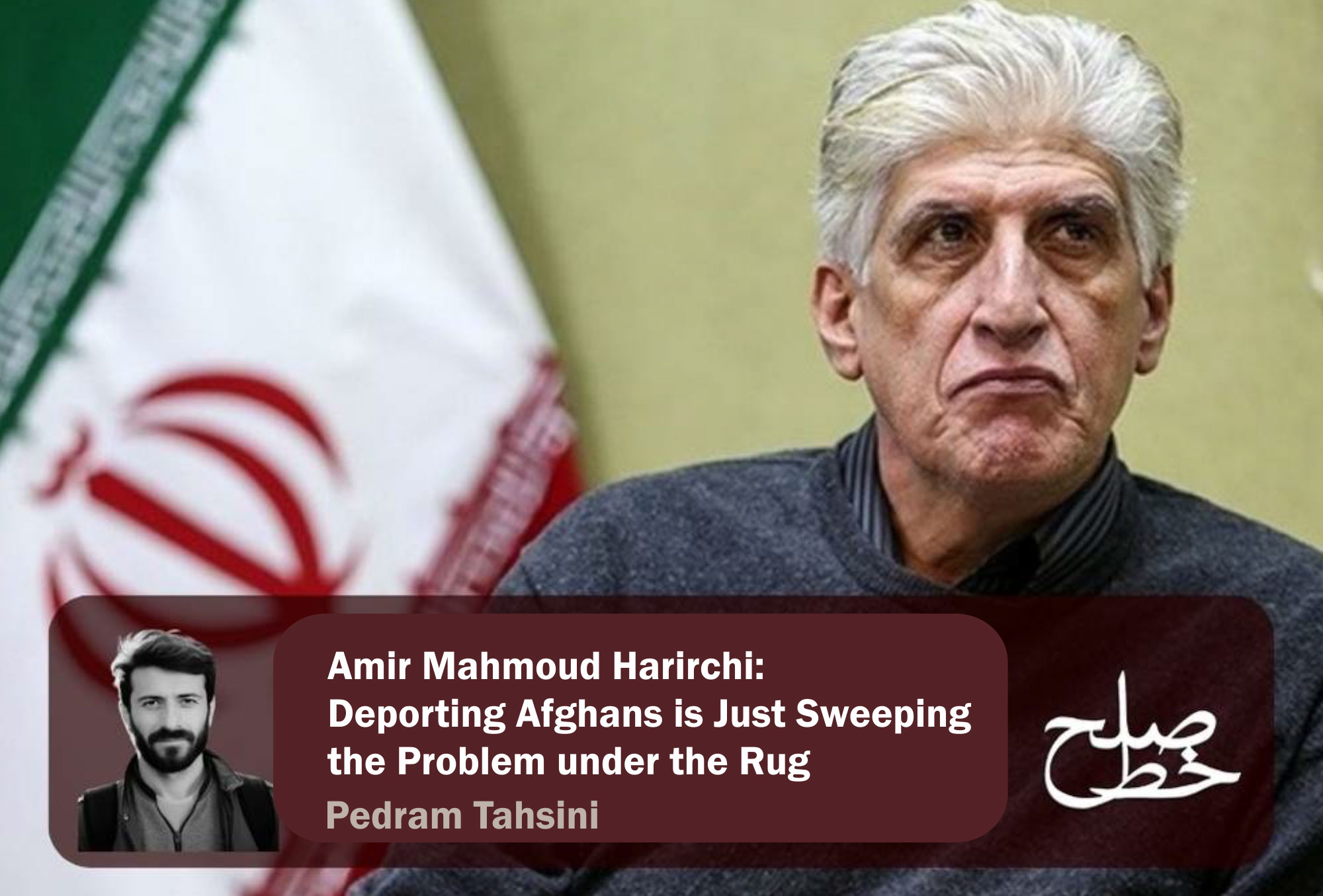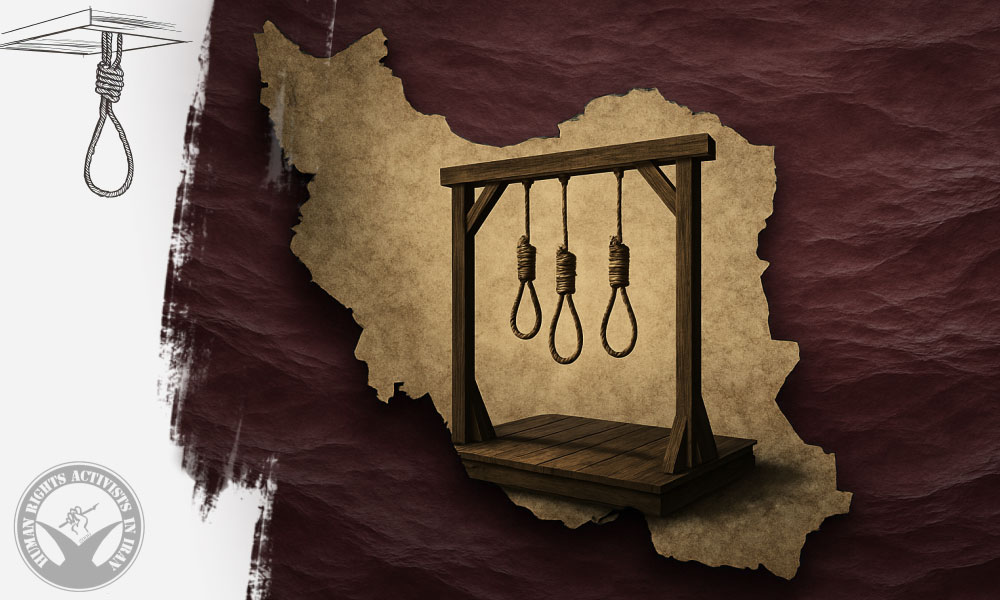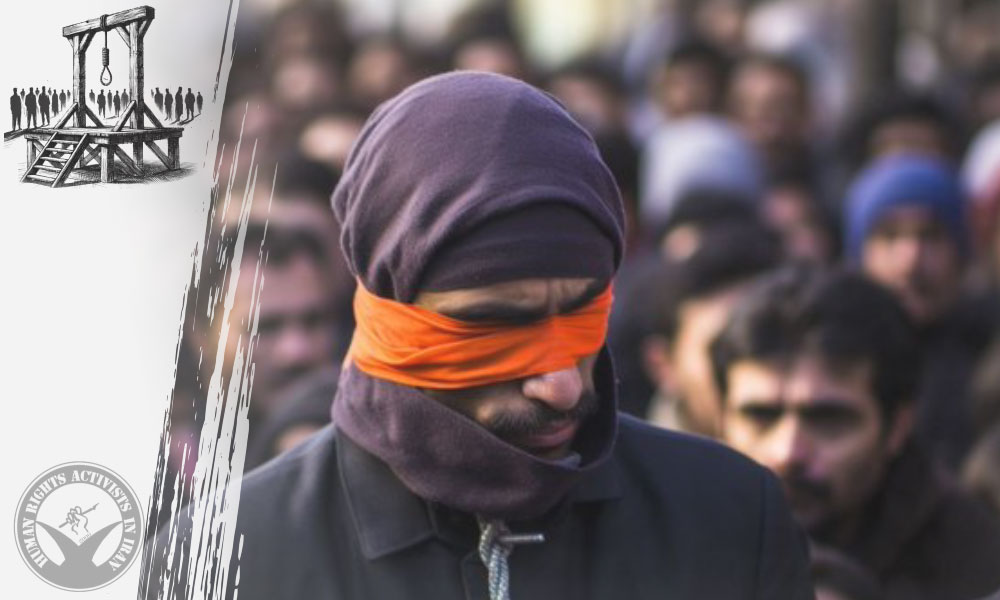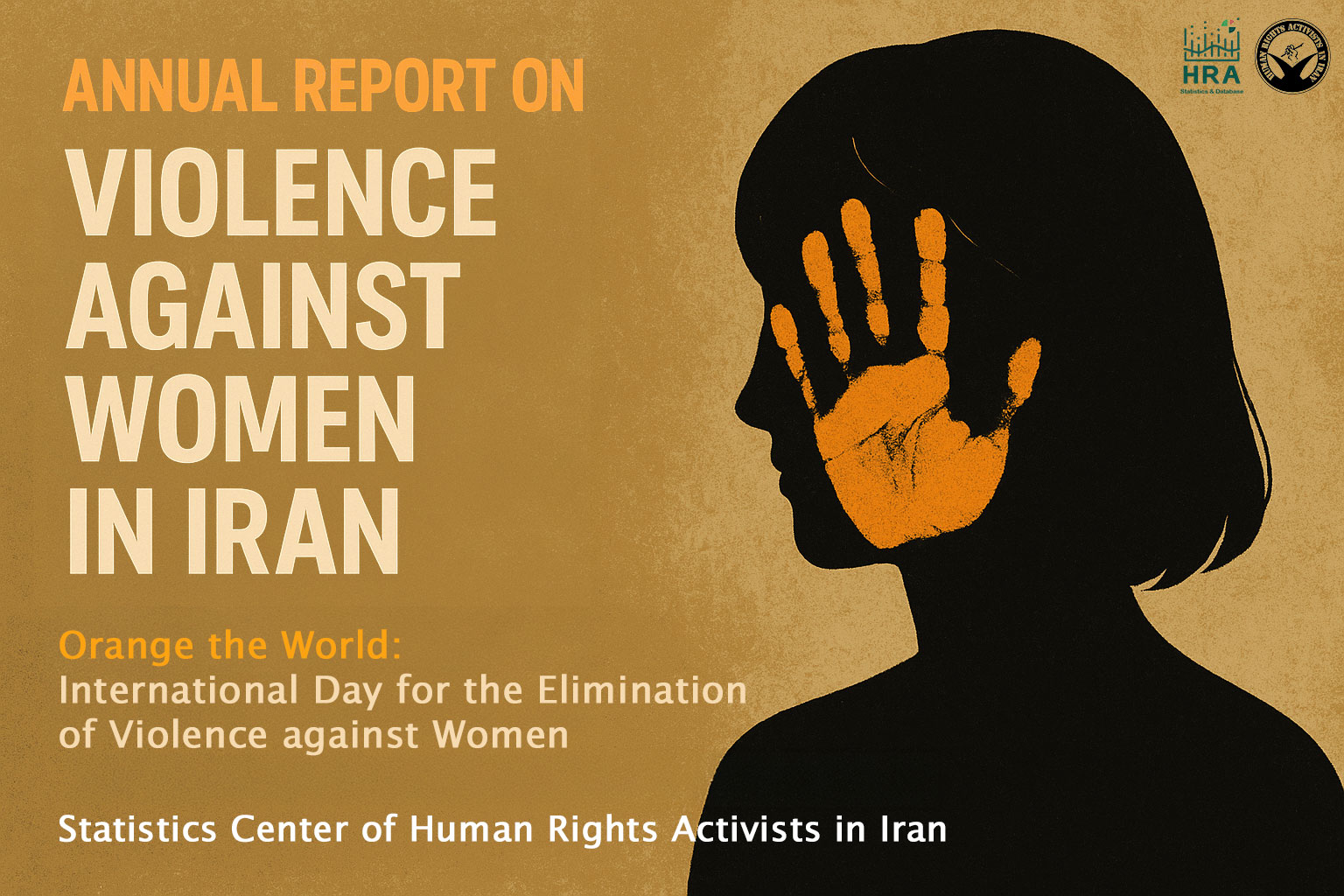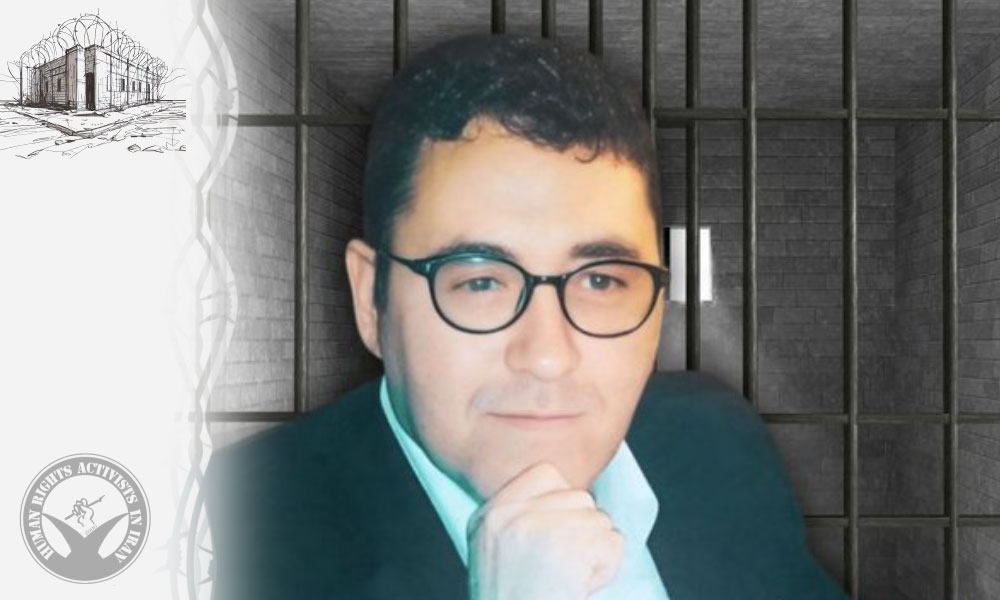HRANA – Migration is not a new story; it is an old narrative that has found a place in the hearts of every nation – a collection of stories, big and small, of victories and defeats. But for the people of Afghanistan, this narrative is full of sorrowful tales. It is a historical pain for our eastern neighbors, who happen to be our historical relatives; people who until recently, in the past century, considered themselves connected to the land and culture of Iran. The happy days of the oppressed people of Afghanistan are so few and short that they do not even register in the course of time. The people of Afghanistan, in their short history of independence, have always been in search of a safe haven and their first and most important destination has always been Iran. This trend accelerated especially with the rise of the Taliban; a group that took control of this land for the second time and their rule still continues. In recent years, especially since 1400, the wave of migration from Afghanistan has increased.
In recent years, as their presence and influence in Iranian society increased, internal opposition also grew stronger, to the point that over the past year, official campaigns for their expulsion were launched. During the past year, and with the beginning of the 14th government’s term, the plan to deport “unauthorized foreign nationals” was put on the agenda and, following the twelve-day war and under security pretexts, intensified. According to official statistics announced by the Ministry of Interior, so far 1.2 million people have left Iran, either “voluntarily” or “forcibly.”
Nevertheless, some social activists inside the country, while opposing either the principle of this plan or the way it has been carried out—particularly the manner of the expulsions—have raised serious questions for policymakers. In this regard, we conducted an interview with Dr. Amir-Mahmoud Harirchi, sociologist and university professor. He considers Afghan migrants to be asylum seekers who have migrated to Iran out of necessity and coercion. He believes that if the decision has been made for them to leave Iran, then rather than “stigmatizing” them, their rights should be respected.
In part of his remarks, this professor and sociologist posed thought-provoking questions:
Will subsidies be fixed if Afghans are expelled? Will job opportunities and employment truly increase again?
You can read the detailed conversation about the peace agreement with this university professor below.
As a sociologist, what factors do you consider important in the decision to expel Afghan immigrants from Iran and how do you generally evaluate their entry into Iran?
Before anything else, I must say that I am very sorry about this situation. They were people who sought refuge in our country, but during their time living in Iran, many of them were heavily exploited and harassed by employers. It is natural that such experiences would create reactions in some of them that may not be pleasant for some Iranians. But if we look at the root of the problem, the main question is: how can we possibly expel those who have sought refuge in our country – and even their children who were born here – from Iran?
It means you don’t know how to do this correctly.
I don’t know for sure. You see, they are being hit by sanctions, but how many of them are affected? Many of them were construction workers or cleaners, consider their jobs. Now we are facing problems in these areas. How do they expect to replace the workforce?
If there had been uncontrolled entry, it would have been a problem for our country. Why did previous governments allow entry? They sought refuge during the Taliban period. It was estimated that five million Afghans had entered Iran and now they are being expelled in this way. It is said that there were even those who had Iranian documents (residency) and there were women and children among them. What was the reason for their entry at that time? The Taliban came and these people entered our country. If they had entered illegally, they should have been dealt with at the time. But they had sought refuge.
One of the reasons for the campaign against the presence of Afghan immigrants in Iran is the high volume of their use of the country’s resources; such as a 6% decrease in bread transactions in the country due to the expulsion of over one million Afghan immigrants, which has been raised by the Minister of Interior. What is your opinion on this matter?
Which national resources? It must be legally present in the country in order for this subsidy to be given to him? A 6% reduction is also part of those words. I emphasized this issue ten years ago as well. So now they are just making excuses, saying that the transaction for bread was done this way or that way? So what about when employers were investing at that time? The majority of these immigrants were construction workers or garbage collectors and cleaners, with minimum wages and no insurance. Meaning those who had minimum wages, which was nothing, and had jobs that were not actually being done by Iranian workers. As a workforce that can be looked at. And only in certain cities, not in the entire country. So that they can work and provide for their families and children.
In your opinion, what are the reasons behind the recent increase in anti-immigrant and anti-Afghan campaigns in Iran in the past year or two? What are the underlying motives or individuals behind it?
In my opinion, it is an excuse to say that if there is no work, it is because of the presence and existence of Afghans.
It means that there is no systematic organization behind this group of people in Iran who are in favor of expelling Afghan immigrants and it is just an excuse? Finally, before the actions of the fourteenth government, a campaign was formed that exactly encouraged the government to do this.
On what basis did they do this? Which survey have they conducted from the people of Iran to express their opinion on why these individuals are causing problems in our country and should be expelled? Look, I have no argument about the fact that conditions should be such that they enter our country with proper order, but they have sought “refuge” and I am talking about this word. The same number of Afghans who sought refuge in Iran, the same number and even more Iranians have gone to other countries – in various legal and illegal ways. Let’s see why they seek refuge and why there is so much desire to leave Iran and even risk their lives to do so. We had elites in the country who left and now we are creating legal conditions for them to not be punished and return, punished for what? Why should they be punished? Just as they have entered Iran from Afghanistan and at one point from Iraq, they have left Iran in the same proportion. There is still a strong desire to emigrate from Iran.
Of course, comparing Iran to Europe may not be entirely accurate. Europe has the capacity to accept a significant number of immigrants, including elite immigrants; however, Iran has not been a destination for elite individuals from neighboring countries, especially Afghanistan, and the majority of migration has been limited to ordinary people…
Ordinary people of Afghanistan came because we do not have the opportunity to attract their elites? Or does Afghanistan not have elites? These are two different issues. While we see their doctors in other places; they may not be many, but they are still there. It should be investigated how our people think about Afghans. Does it mean that if they are expelled, the situation of subsidies will improve? Or if they are expelled from Iran, will the conditions for work and employment increase again?
The question is: Who will replace the Afghan worker who used to work there? I use the term “bigari” for them; by multiple employers who know they are Afghan and yet, work very honestly and hard.
The first point is why they have sought refuge in our country? Surely, they have had human rights reasons. But see how they are treated at the borders and what awaits them on the other side of the border. With all our claims of being Muslim, how can we be willing to expel them in this way, knowing the tragedies that await them on the other side of the border? As Muslims and fellow countrymen, who are also culturally very close to us, how can we bear to treat them in such a way? Is it really not important to us what awaits them?
Do you prioritize human rights in this matter?
Yes, the main issue is their own human rights and fundamental rights. How is it possible to deport someone who has come to this country for a better life, just because of their father’s problem? If the father has committed a crime, he should be arrested and punished. But what about the contractor who hired that father? In Hamedan, one of these contractors had put so much pressure on an Afghan worker that he went insane and committed a crime. These examples exist. We cannot bear to see the suffering of children in Gaza and we get upset, so how can we send vulnerable Afghan children to the other side of the border to be under the control of the Taliban? Of course, I have heard that Afghan people from the other side of the border have voluntarily come to their aid and helped them. On the other hand, landlords do not give back the money they have given to Afghans or they tear up their identification cards. In my opinion, society has gotten carried away in this matter.
What should be done?
What should we do?! In my opinion, we should behave with order and discipline. If we emphasize on “Islamic kindness”, this kindness should be implemented within a structured and organized framework; meaning we should protect and organize the presence of immigrants in the country. If they are working somewhere, it should be within a specific framework. Have you ever seen an Afghan beggar in Iran?
The government also says that order must be restored and part of this “restoration” involves expelling “illegal immigrants” from the country.
Does it mean that those who have remained in the country are all allowed? Is it really being investigated under what conditions these authorized individuals are living? If we do not address the situation of those who have sought refuge and have been recognized as authorized, is this humane? Is it compatible with human rights? Expelling them is essentially just cleaning the surface of the problem, not solving and organizing it.
Can you explain more about your proposed solution?
We must identify where the rights of these individuals are not being respected. For example, does someone who works, receives a salary, and is even authorized, have insurance? If the employer fires them, where can they file a complaint? Even among Iranians, there are many who lose their rights and have no job security; to the point where they can be exploited and then released. This situation must be corrected. The issue is not just being Afghan or not; the principle is that no human being should be subject to exploitation. When a child is not sent to school, what are the consequences? They become child laborers. This official statistic shows that the number of child laborers is increasing. In these circumstances, many Iranians with a bachelor’s or master’s degree are forced to work for Snapp (ride-hailing app). It is natural that such pressures and injustices ultimately lead to an increase in violence in society.
We see how they throw them out. A person has rented houses, paid the money upfront, and is sitting, but now the landlord makes excuses that he is unauthorized and does not return the money. Now who should handle this issue? Where should this person file a complaint that such and such landlord or employer has caused such a disaster, has not paid his debts or has not paid his salary for several months?
Unauthorized individuals also have rights; if the rights of others are respected, the rights of these individuals must also be respected. But when the rights of Iranians are not respected, it is natural for them to be more disadvantaged, let alone if they are also Afghan.
Okay, you say “you are unauthorized and for these reasons you cannot stay. We gave you refuge before, but now the circumstances have changed and we do not want you to be in this country anymore.” But if this expulsion causes problems, who should they turn to? Especially women and children who are always more vulnerable. Maybe someone has done something wrong, but what will happen to that child who is five or six years old or that woman who came to Iran with hope and her husband works day and night, but now because they are considered “unauthorized,” they want to throw them all out.
When we talk about human rights, it is especially important to consider women and children, everywhere in the world and particularly in regards to migrants. Even if the decision to deport has been made, it must be done in a humane and fair manner, not in a brutal and harsh way that breaks the hearts of countless individuals.
Thank you for the time you gave Peace Mark Monthly Magazine.
Interviewer: Pedram Tahsini
Originally published in Khat-e Solh (Peace Mark) monthly magazine on August 23, 2025.



